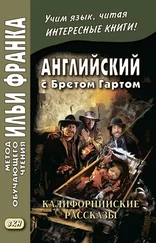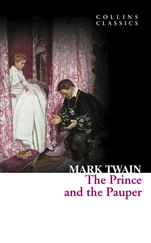Mark Twain - The Curious Republic of Gondour, and Other Whimsical Sketches
Здесь есть возможность читать онлайн «Mark Twain - The Curious Republic of Gondour, and Other Whimsical Sketches» весь текст электронной книги совершенно бесплатно (целиком полную версию без сокращений). В некоторых случаях можно слушать аудио, скачать через торрент в формате fb2 и присутствует краткое содержание. Год выпуска: 2004, Жанр: Классическая проза, Публицистика, на английском языке. Описание произведения, (предисловие) а так же отзывы посетителей доступны на портале библиотеки ЛибКат.
- Название:The Curious Republic of Gondour, and Other Whimsical Sketches
- Автор:
- Жанр:
- Год:2004
- ISBN:нет данных
- Рейтинг книги:3 / 5. Голосов: 1
-
Избранное:Добавить в избранное
- Отзывы:
-
Ваша оценка:
- 60
- 1
- 2
- 3
- 4
- 5
The Curious Republic of Gondour, and Other Whimsical Sketches: краткое содержание, описание и аннотация
Предлагаем к чтению аннотацию, описание, краткое содержание или предисловие (зависит от того, что написал сам автор книги «The Curious Republic of Gondour, and Other Whimsical Sketches»). Если вы не нашли необходимую информацию о книге — напишите в комментариях, мы постараемся отыскать её.
The Curious Republic of Gondour, and Other Whimsical Sketches — читать онлайн бесплатно полную книгу (весь текст) целиком
Ниже представлен текст книги, разбитый по страницам. Система сохранения места последней прочитанной страницы, позволяет с удобством читать онлайн бесплатно книгу «The Curious Republic of Gondour, and Other Whimsical Sketches», без необходимости каждый раз заново искать на чём Вы остановились. Поставьте закладку, и сможете в любой момент перейти на страницу, на которой закончили чтение.
Интервал:
Закладка:
"Sights and Sounds of the Great Novelist." A popular lecture. By John Gray, who waited on his table all the time he was at the Grand Hotel, New York, and still has in his possession and will exhibit to the audience a fragment of the Last Piece of Bread which the lamented author tasted in this country.
"Heart Treasures of Precious Moments with Literature's Departed Monarch." A lecture. By Miss Serena Amelia Tryphenia McSpadden, who still wears, and will always wear, a glove upon the hand made sacred by the clasp of Dickens. Only Death shall remove it.
"Readings from Dickens." By Mrs. J. O'Hooligan Murphy, who washed for him.
"Familiar Talks with the Great Author." A narrative lecture. By John Thomas, for two weeks his valet in America.
And so forth, and so on. This isn't half the list. The man who has a "Toothpick once used by Charles Dickens" will have to have a hearing; and the man who "once rode in an omnibus with Charles Dickens;" and the lady to whom Charles Dickens "granted the hospitalities of his umbrella during a storm;" and the person who "possesses a hole which once belonged in a handkerchief owned by Charles Dickens." Be patient and long-suffering, good people, for even this does not fill up the measure of what you must endure next winter. There is no creature in all this land who has had any personal relations with the late Mr. Dickens, however slight or trivial, but will shoulder his way to the rostrum and inflict his testimony upon his helpless countrymen. To some people it is fatal to be noticed by greatness.
THE TONE-IMPARTING COMMITTEE
When I get old and ponderously respectable, only one thing will be able to make me truly happy, and that will be to be put on the Venerable Tone-Imparting committee of the city of New York, and have nothing to do but sit on the platform, solemn and imposing, along with Peter Cooper, Horace Greeley, etc., etc., and shed momentary fame at second hand on obscure lecturers, draw public attention to lectures which would otherwise clack eloquently to sounding emptiness, and subdue audiences into respectful hearing of all sorts of unpopular and outlandish dogmas and isms. That is what I desire for the cheer and gratification of my gray hairs. Let me but sit up there with those fine relics of the Old Red Sandstone Period and give Tone to an intellectual entertainment twice a week, and be so reported, and my happiness will be complete. Those men have been my envy for a long, long time. And no memories of my life are so pleasant as my reminiscence of their long and honorable career in the Tone-imparting service. I can recollect that first time I ever saw them on the platforms just as well as I can remember the events of yesterday. Horace Greeley sat on the right, Peter Cooper on the left, and Thomas Jefferson, Red Jacket, Benjamin Franklin, and John Hancock sat between them. This was on the 22d of December, 1799, on the occasion of the state' funeral of George Washington in New York. It was a great day, that—a great day, and a very, very sad one. I remember that Broadway was one mass of black crape from Castle Garden nearly up to where the City Hall now stands. The next time I saw these gentlemen officiate was at a ball given for the purpose of procuring money and medicines for the sick and wounded soldiers and sailors. Horace Greeley occupied one side of the platform on which the musicians were exalted, and Peter Cooper the other. There were other Tone-imparters attendant upon the two chiefs, but I have forgotten their names now. Horace Greeley, gray-haired and beaming, was in sailor costume—white duck pants, blue shirt, open at the breast, large neckerchief, loose as an ox-bow, and tied with a jaunty sailor knot, broad turnover collar with star in the corner, shiny black little tarpaulin hat roosting daintily far back on head, and flying two gallant long ribbons. Slippers on ample feet, round spectacles on benignant nose, and pitchfork in hand, completed Mr. Greeley, and made him, in my boyish admiration, every inch a sailor, and worthy to be the honored great-grandfather of the Neptune he was so ingeniously representing. I shall never forget him. Mr. Cooper was dressed as a general of militia, and was dismally and oppressively warlike. I neglected to remark, in the proper place, that the soldiers and sailors in whose aid the ball was given had just been sent in from Boston—this was during the war of 1812. At the grand national reception of Lafayette, in 1824, Horace Greeley sat on the right and Peter Cooper to the left. The other Tone-imparters of the day are sleeping the sleep of the just now. I was in the audience when Horace Greeley, Peter Cooper, and other chief citizens imparted tone to the great meetings in favor of French liberty, in 1848. Then I never saw them any more until here lately; but now that I am living tolerably near the city, I run down every time I see it announced that "Horace Greeley, Peter Cooper, and several other distinguished citizens will occupy seats on the platform;" and next morning, when I read in the first paragraph of the phonographic report that "Horace Greeley, Peter Cooper, and several other distinguished citizens occupied seats on the platform," I say to myself, "Thank God, I was present." Thus I have been enabled to see these substantial old friends of mine sit on the platform and give tone to lectures on anatomy, and lectures on agriculture, and lectures on stirpiculture, and lectures on astronomy, on chemistry, on miscegenation, on "Is Man Descended from the Kangaroo?" on veterinary matters, on all kinds of religion, and several kinds of politics; and have seen them give tone and grandeur to the Four-legged Girl, the Siamese Twins, the Great Egyptian Sword Swallower, and the Old Original Jacobs. Whenever somebody is to lecture on a subject not of general interest, I know that my venerated Remains of the Old Red Sandstone Period will be on the platform; whenever a lecturer is to appear whom nobody has heard of before, nor will be likely to seek to see, I know that the real benevolence of my old friends will be taken advantage of, and that they will be on the platform (and in the bills) as an advertisement; and whenever any new and obnoxious deviltry in philosophy, morals, or politics is to be sprung upon the people, I know perfectly well that these intrepid old heroes will be on the platform too, in the interest of full and free discussion, and to crush down all narrower and less generous souls with the solid dead weight of their awful respectability. And let us all remember that while these inveterate and imperishable presiders (if you please) appear on the platform every night in the year as regularly as the volunteered piano from Steinway's or Chickering's, and have bolstered up and given tone to a deal of questionable merit and obscure emptiness in their time, they have also diversified this inconsequential service by occasional powerful uplifting and upholding of great progressive ideas which smaller men feared to meddle with or countenance.
OUR PRECIOUS LUNATIC
New YORK, May 10.
The Richardson-McFarland jury had been out one hour and fifty minutes. A breathless silence brooded over court and auditory—a silence and a stillness so absolute, notwithstanding the vast multitude of human beings packed together there, that when some one far away among the throng under the northeast balcony cleared his throat with a smothered little cough it startled everybody uncomfortably, so distinctly did it grate upon the pulseless air. At that imposing moment the bang of a door was heard, then the shuffle of approaching feet, and then a sort of surging and swaying disorder among the heads at the entrance from the jury-room told them that the Twelve were coming. Presently all was silent again, and the foreman of the jury rose and said:
Читать дальшеИнтервал:
Закладка:
Похожие книги на «The Curious Republic of Gondour, and Other Whimsical Sketches»
Представляем Вашему вниманию похожие книги на «The Curious Republic of Gondour, and Other Whimsical Sketches» списком для выбора. Мы отобрали схожую по названию и смыслу литературу в надежде предоставить читателям больше вариантов отыскать новые, интересные, ещё непрочитанные произведения.
Обсуждение, отзывы о книге «The Curious Republic of Gondour, and Other Whimsical Sketches» и просто собственные мнения читателей. Оставьте ваши комментарии, напишите, что Вы думаете о произведении, его смысле или главных героях. Укажите что конкретно понравилось, а что нет, и почему Вы так считаете.











